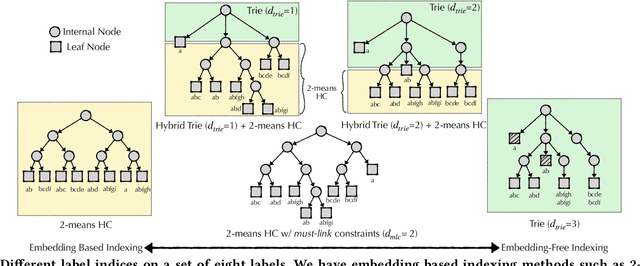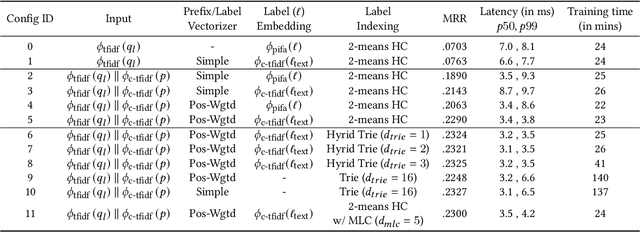Session-Aware Query Auto-completion using Extreme Multi-label Ranking
Paper and Code
Dec 09, 2020



Query auto-completion is a fundamental feature in search engines where the task is to suggest plausible completions of a prefix typed in the search bar. Previous queries in the user session can provide useful context for the user's intent and can be leveraged to suggest auto-completions that are more relevant while adhering to the user's prefix. Such session-aware query auto-completions can be generated by sequence-to-sequence models; however, these generative approaches often do not meet the stringent latency requirements of responding to each user keystroke. Moreover, there is a danger of showing non-sensical queries in a generative approach. Another solution is to pre-compute a relatively small subset of relevant queries for common prefixes and rank them based on the context. However, such an approach would fail if no relevant queries for the current context are present in the pre-computed set. In this paper, we provide a solution to this problem: we take the novel approach of modeling session-aware query auto-completion as an eXtreme Multi-Label Ranking (XMR) problem where the input is the previous query in the session and the user's current prefix, while the output space is the set of millions of queries entered by users in the recent past. We adapt a popular XMR algorithm for this purpose by proposing several modifications to the key steps in the algorithm. The proposed modifications yield a 230% improvement in terms of Mean Reciprocal Rank over the baseline XMR approach on a public search logs dataset. Our approach meets the stringent latency requirements for auto-complete systems while leveraging session information in making suggestions. We show that session context leads to significant improvements in the quality of query auto-completions; in particular, for short prefixes with up to 3 characters, we see a 32% improvement over baselines that meet latency requirements.
 Add to Chrome
Add to Chrome Add to Firefox
Add to Firefox Add to Edge
Add to Edge